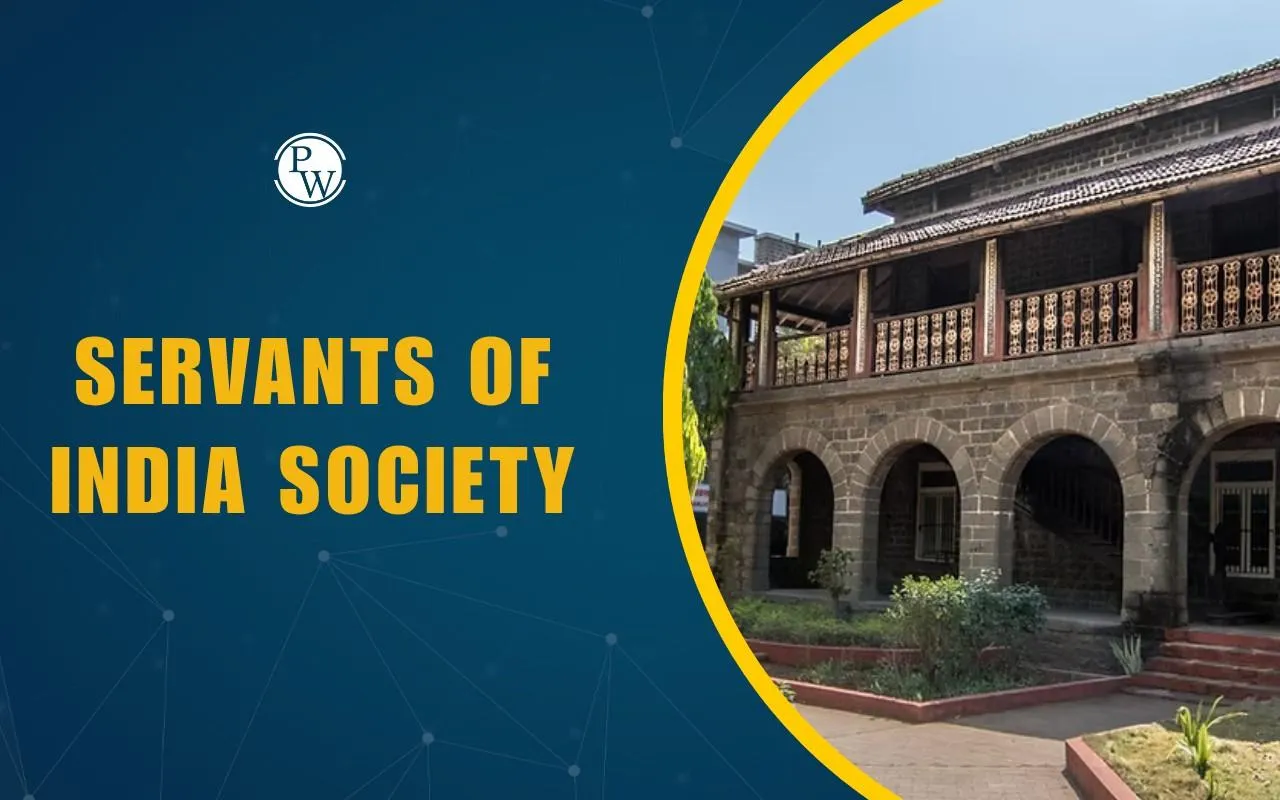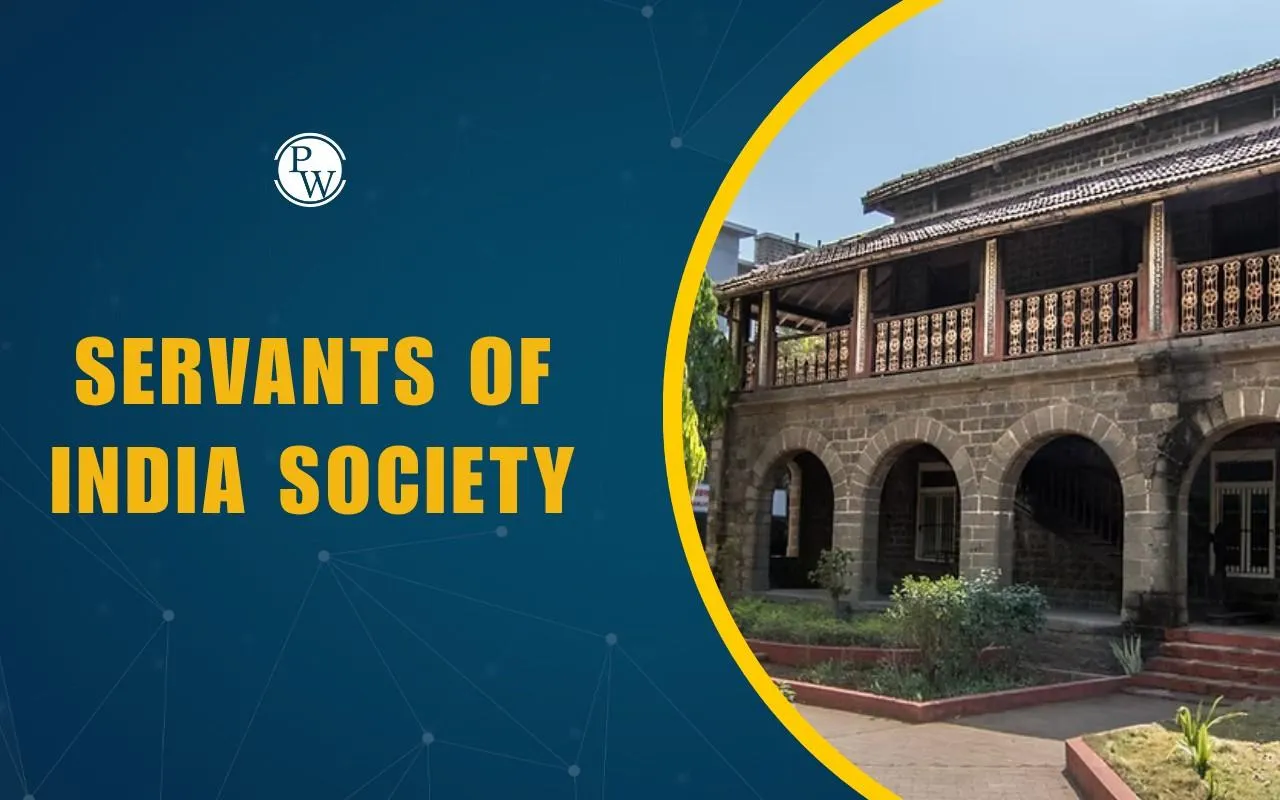

Servants of India Society was the pioneering organization through selfless service, shaped India's Freedom Movement. The Servants of India Society came into being during the early years of the 20th century with the purpose of social welfare, education, and national consciousness. The society stands as one of the first few secular organizations in India concerned with social welfare apart from the political movements. Members of this society took vows of renunciation and dedicated their lives to public service, emphasizing discipline and moral leadership.
The organization also launched campaigns against social evils like untouchability, poverty, and women's oppression, thus contributing to the national awakening during the pre-independence era.
What Was Servants of India Society?
In 1905, Servants of India Society was established by Gopal Krishna Gokhale in Pune. He was a prominent moderate leader of the Indian National Congress. Gopal Krishna Gokhale gathered a few volunteers who shared his vision of selfless service. The foundation marked a new approach to nationalism rooted in education, social upliftment, and sacrifice.
Gokhale believed in the policy of gradual reform and building institutions to serve the people, not merely creating a demand for political rights. The Servants of India Society is a non-political, non-religious organization set up for public service, national regeneration, and social reform.
Servants of India Society Members
The members of the Servants of Indian society included a dedicated group of nationalists, social reformers, and educators. Besides Gopal Krishna Gokhale, other well-known figures who were associated with the society included:
- N. G. Chandavarkar: An Esteemed Social Reformer and Judge
- Datar (B. N. Datar): Worked for social upliftment
- Gopal Ganesh Agarkar: Educationist and social reformer
- Many of the rank-and-file activists opted for service over fame.
The members donated their salaries and frequently volunteered to work in the most remote villages. Their commitment was personal, not political.
Servants of India Society Objectives
The aims of the Servants of India Society were far-reaching and struck deep roots in social reform. Their main objectives were:
- Empower the poor and marginalized through education.
- Encouragement of public health, eradication of disease.
- Fighting social evils such as caste discrimination and untouchability.
- Strengthening national unity by diffusing national consciousness.
- Social service in support of rural development and self-reliance.
- Training people to give themselves to service rather than to personal interests.
- These objectives aimed at bringing forth a generation of "servants" that put the welfare of the public first and above their personal ambitions.
Contributions of Servants of India Society
The Servants of India Society conducted a wide range of social and educational work:
1. Education and Literacy
They set up schools in rural areas and taught children who otherwise did not have access to formal education. Besides, they also conducted adult literacy programs for villagers and the poor.
2. Public Health Work
They organized health camps, clinics, and vaccination drives. Their volunteers went to remote areas and educated people on hygiene, sanitation, and disease prevention.
3. Social Reform
Their struggle for the abolition of caste discrimination and untouchability was quiet yet firm. They brought seeds of social harmony by promoting inter-caste dialogue and equality.
4. National Awakening
It played a subtle yet significant role in strengthening Indian nationalism. Although the leaders were not radical, the sense of duty, discipline, and self-sacrifice they instilled among the members of this society was precisely what was needed for any nation-state to become strong.
Legacy and Influence of Servants of India Society
Although the Servants of India Society never became a mass political organization, its influence was profound.
- It helped create a group of socially conscious Indians who believed in nation-building through service.
- Its model inspired future social movements and reform organizations in independent India.
- Many of its former members went on to hold important positions in education, public health, and social work after Independence.
- Even today, the society remains a charitable trust working silently in areas such as education, public health, and rural development.
- Although small in size, it had a profound impact on the moral and intellectual fibre of Indian nationalism.
Challenges Faced by Servants of India Society
Over the years, there were numerous problems that the Servants of India Society had to face. Yet, its commitment to service over politics is what has continued to define its relevance. Some of these were:
- Because many volunteers did not seek power or money, it was hard to maintain the membership.
- The funding remained limited, as there was no political funding or corporate backing.
- As political movements became more radical and mass-based, the moderate and service-based approach of the society seemed less urgent to some nationalists.
- As priorities changed after Independence, new institutions attracted more attention.
